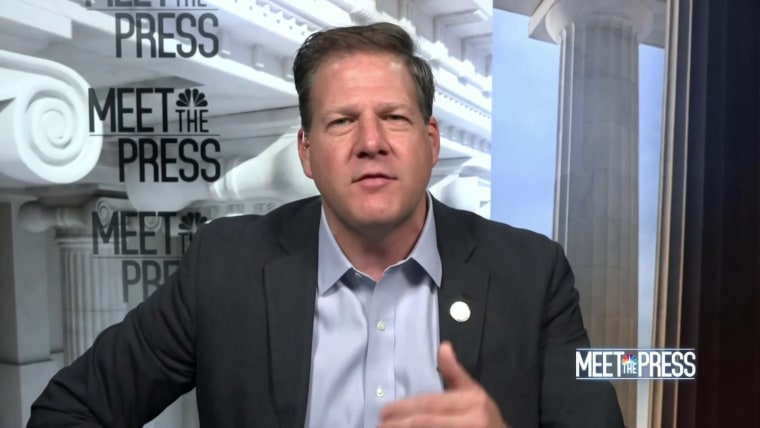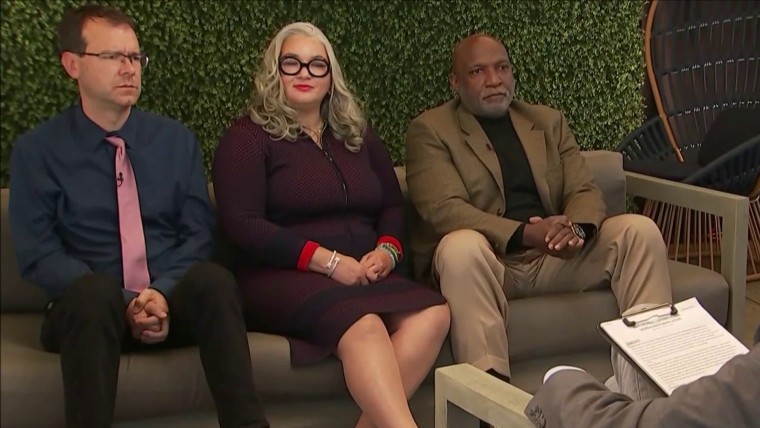The election is days away, but we already know the outcome of the 2022 midterms in one key respect: Regardless of which party comes out on top, there will be no resolution of the larger cultural fights raging in the U.S.
This standoff will shift the terrain only by inches, even if it does help change which party has technical control of Congress. As for resolving the larger argument, that’s still a decision that the country makes during presidential elections, not midterms.
But what these elections will decide is which of the two major parties is going be on the defensive and most in need of reform.
For Republicans, a populist question
Neither party is currently prepared for the coming 2024 fight because both have unresolved internal issues that the midterm results may put into sharper focus.
If the Republicans get the clean sweep, picking up 20 to 25 House seats and just enough Senate seats to get control, they likely won’t feel the need to deal with their larger problem that’s taking place inside the party: The split between the traditional establishment wing of the GOP, loosely represented by the chamber of commerce, versus the wing led by Trump and his populists.
If such a winning election season happens, Trump will hail the results as vindication and many inside the party will publicly call for more detente between the establishment wing and the Trump wing of the party since a clean sweep would be proof to some Republicans that if the party is publicly united, they can win.
Sen. Lindsey Graham, R-S.C., has been a real weather vane when it comes to straddling that divide and showing Republicans which way the winds are blowing. He began as a never-Trumper when he was running for president and is now among the former president’s biggest cheerleaders because, in his state of South Carolina, you don’t succeed in Republican politics by bashing Trump.
Expect even more Republicans to start echoing Lindsey Graham on this because the rural turnout and the Trump base turnout looks to be the engine of these midterms for the GOP.
Virginia’s Glenn Youngkin is another Republican trying to find his way among the GOP faithful. He’s never gone out of his way to embrace Trump, nor has he bashed him. And given how his 2021 election was fueled by rural, pro-Trump turnout, he’s become more comfortable embracing those types of candidates.
Too progressive or not progressive enough?
The rise and success of Donald Trump has papered over this problem at times and has both helped and hurt Democrats in these midterms as they try to run on a unified message of democracy, abortion rights and protecting sacred entitlements like Medicare, Social Security and Obamacare.
But the party struggles to respond to the consistent GOP attacks, at every level, that seek to tie Democrats to their more unpopular progressive wing, especially on crime and immigration. “Cash-less bail” is not a mainstream Democratic Party position, but enough Democrats with national name recognition have pushed the idea and just enough progressive prosecutors have attempted to implement or implemented the practice, that it’s stuck.
The Democrats have more of a perception problem on crime than an actual problem. But the fact of the matter is, they are losing on the crime issue — not by a little, but a lot. And, right now, if the GOP ends up with a pickup of 25 or more House seats and 3 or more incumbent governors, they will largely have the crime perception issue to blame, which then brings us back to the coming ideological debate between the progressives and the traditional establishment and mainstream Democrats.
Even if the data does point to unpopular progressive policy positions as the basis for Democratic problems, that doesn’t mean progressives will simply accept that premise. Look for the counter argument to be centered on the idea that if anyone is out of touch, it’s the official leaders of a party who are all mostly over the age of 70.
And that “generational gap” could be the explanation the left makes for the party’s inability to articulate what they have done and what they should do. Or progressives might take a page from the conservative playbook which for years would explain away every GOP defeat as simply the party not being conservative enough.
Then there’s the economy. The reality is that neither party has as much of an impact on the economy as either wants to admit. But during tough economic times, it’s easy for the “out” party (in this case the GOP) to point the finger at the “in” party.
This worked for the Democrats in 2008 and 1992 and the GOP in 1980 and possible 2022. When the economy isn’t great, voters are always more open minded to some change. If the Democrats were only dealing with the inflation issue, they probably would be in better shape countering with abortion and democracy and the protecting entitlement messaging. But crime and immigration coupled with the economy has become a tad more difficult.
Who can win back the middle?
In short, every race of these midterms may come back to the following question: Who is more out of touch with the middle of the American electorate: the progressive left or the Trump right? If crime and the economy are more front and center in your area, you are likely to view the progressive left as more out of touch than the Trump right. If the debate in your area is about election denial, abortion rights, you may believe it’s the Trump right that’s more out of touch.
And it’s that issue that will likely animate the debate the losing party needs to have when all the votes are counted. It could be an ugly few months for the losing party, maybe even an ugly year. But just because the fight is public and ugly, doesn’t mean it isn’t necessary and eventually helpful ahead of 2024.
The fight in the GOP in 2016 was ugly and divisive, and yet, it seemed to set the party on a new course that has made it more competitive, not less in the last 6 years.
The Democrats’ last true ideological fight was in 1990 (more so than 2008, which centered on personality and generational change more than ideology). That post-1990 Democratic Party fight had its roots in the 1988 Dukakis defeat which was marked by the perception Dukakis and the Democrats were simply “too soft” to deal with crime or the international scene.
That fight was ugly and the left never fully accepted defeat by the centrists, but Clinton shifted the party to the right on crime and foreign policy and it gave the Democrats the ability to compete nationally again for a generation. Consider, since 1992, Republicans have only won the presidential popular vote once (2004), that’s it.
So what’s better for both parties, short-term defeat that forces an inward look? Or short-term victory that papers over the divides that won’t be going anywhere anytime soon? We may have the answer to that question sooner than we think.
Source: | This article originally belongs to Nbcnews.com












